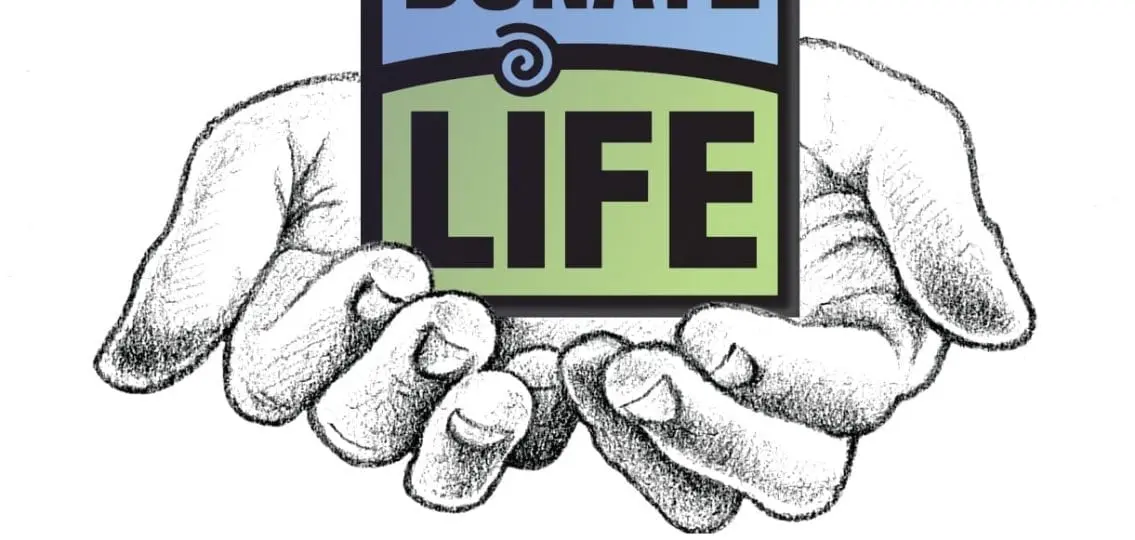Some people pick a passion based on a life experience. Our passion is organ donation because we lived it.
It was a typical Monday, and I wasn’t too surprised to get a call from the principal’s office. While my three kids are generally healthy, it isn’t unusual for them to come down with something. But, this call was different. The principal said that Emma, the younger of our identical, nine-year-old twins, was feeling fine, but had suddenly turned yellow. The pediatrician wasn’t worried. If she was still yellow the next day, he said to bring her back for blood tests. We returned the next day for blood tests.
We were shocked when he called late Wednesday to say that we needed to drive Emma immediately to Children’s Hospital in Columbus. The blood tests showed extremely elevated liver numbers. From there, Emma was transported to Cincinnati Children’s Hospital, a major transplant center. Twelve days after the first call, Emma started showing signs of encephalitis and was taken to intensive care. She was immediately put on the national transplant waiting list.
At this point, Emma was completely incoherent. Early Monday, a donor was accepted, and exactly two weeks after the first signs of illness, Emma had a new liver. Remarkably, after 20 days in the hospital and two additional weeks of recovery at the Ronald McDonald House, Emma and her new liver were managing well.
Surviving Liver Failure: A Life After Her Liver Donation
Today, Emma is a normal teen: texting, using social media, playing in the school band, taking dance and piano classes, and running around with her friends. We thank God and her donor for her second chance at life. We have all heard stories like Emma’s in the news, but I never thought it could happen to my own healthy child. Now, I know that the unexpected can happen, and I’ve learned to really appreciate each day.
You never know when it might be your last day, as it was for Emma’s donor, an 18-year-old woman who unexpectedly lost her life. We grieve for her and her family, but thank them daily for making the difficult decision to donate life. Without that decision, there would have been two young lives lost.
The Worries Persist
Today, I struggle with Emma’s situation far more than she does. My life is a constant juggling act, working to ensure that Emma remains healthy while attempting to support a normal lifestyle for her. I am aware that our experience could repeat itself at any moment. When she’s tired or generally not feeling well, I try not to panic. My job is to reassure Emma so that she doesn’t become overly cautious about living. I don’t want her ever to feel limited because of her health.
We have twin daughters and an older son. It’s important that I treat each child equally, yet it is always in the back of my mind that we almost suddenly and inexplicably lost Emma. I live with the feeling that I need to provide her with as much opportunity as possible now because she may not have a chance later.
I think everyone is put in this life for a reason. Our purpose is to educate others about the importance of organ donation. As Emma gets older, I am encouraging her to educate others about the need for organ donation and organ donor registration. I feel that we have a responsibility to help others understand the significance of registering as an organ donor. We want all teens to select organ donation when they get their driver’s license. Emma and I can play a strong role in advocating the cause to peers and parents. We hope that by telling our story, more lives will be saved.




